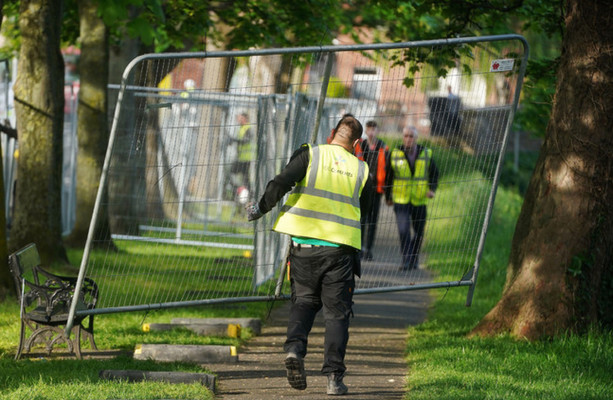With the clocks set to go back on October 27, elderly care experts have warned that the change is likely to present issues for people with dementia including disorientation, confusion and anxiety.
In the UK alone, more than 944,000 people suffer with dementia according to figures from the NHS, which is expected to go up to 1.4m by 2040.
Unfortunately for those with dementia, the clock falling back an hour can be distressing for both them and their carers as it can lead to cognitive issues and low moods.
Care expert Lee Cartwright from Mobility Solutions Direct has offered some advice and guidance for those taking care of people who suffer with the syndrome which affects memory, thinking and social abilities, ahead of the clocks going back.
Lee said: “With the clocks set to go back at the end of October, bringing darker mornings and evenings, people with dementia may struggle to distinguish between 6AM and 6PM. Dementia impairs cognitive abilities like memory, making it challenging for those with the condition to comprehend time.
“When daylight savings ends, and darker days ensue, this can disrupt people’s internal body clock, making it harder for those with dementia to maintain a healthy sleeping pattern. Consequently, this can lead to heightened anxiety, low mood, impaired cognitive abilities and other health issues for individuals with dementia.”
Luckily, there are several tips to help people with dementia cope with the clocks going backwards and Lee has shared his best tips.
How to help someone with dementia
Prepare for the clocks going back
On Saturday (October 26) before the clocks go back, you should consider changing the person’s routine by allowing them to have their dinner and got to bed an hour later.
This will mean they can have the same amount of sleep as they usually do and wake up at their normal time on Sunday. It’s also important to be patient with the person as the time shift will cause confusion and you should be offering reassurance to them.
Maintain a new routine
Lee suggests establishing a new daily routine for the person to fit the daylight hours and help reset their disrupted body clock. He advises to keep their meal times, activities and sleep schedule consistent to provide a sense of stability.
For example, help the person engage in low-impact exercises at the same time each day, such as a walk after breakfast. This will help the person with dementia make sense of the time.
Spend time outside
Lee said: “In general, low-impact exercise outside will help individuals with dementia regulate their sleeping patterns. Additionally, bright light has been found to regulate the circadian rhythms.
“Just make sure that the person is bundled up in warm clothing as the temperature gets cooler.
“If the person outside is unable to go outside, you can simulate sunlight in the home by sitting them in front of a lightbox for a similar result.
Create a calming sleep environment
It’s a good idea to make sure the person with dementia has a bedroom which is dark, quiet and free of distraction to create the ideal sleeping environment.
Lee recommends: “Make sure the bedding is fresh and regularly washed for improved sleep hygiene and encourage the person to read or take a warm bath to aid in relaxation. Also, limit daytime naps to avoid disrupting the person’s new sleep routine.”
Factors that can make dementia worse
Explaining further about how the clocks going backwards can worsen dementia, Lee listed the four main things that can become an issue.
Becoming disorientated
“The shift in time can disrupt your internal clock, making it difficult for people with dementia to understand the day, time, and location. This can lead to feelings of disorientation, which can be particularly distressing.
Disturbed sleep patterns
“Clocks going backwards can disrupt their sleep patterns, causing insomnia, excessive sleepiness, or difficulty falling asleep. This can contribute to feelings of confusion and agitation.
“Individuals with dementia might experience a phenomenon called ‘sundowning’, which can make them more confused and agitated.
“The change in daylight and shorter days can make it more difficult for people with the condition to differentiate between day and night, intensifying sundowning symptoms.”
Difficulty adjusting to new routines
“Establishing a new routine after the time change can be challenging for people with dementia, who often benefit from consistency. This disruption can lead to feeling uncertain and anxious, and having low moods in general.”
Don’t miss the latest news from around Scotland and beyond – Sign up to our newsletter here .





